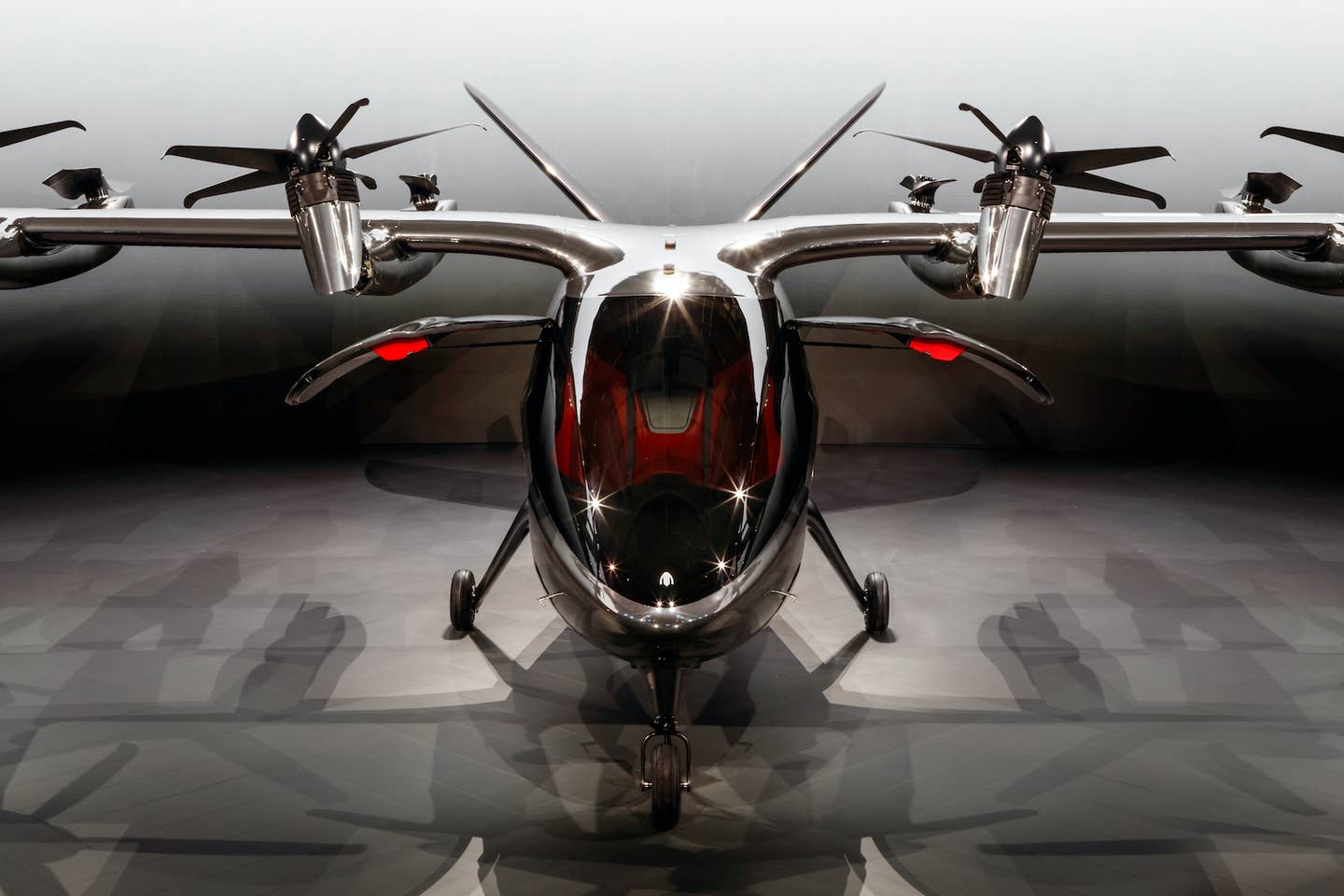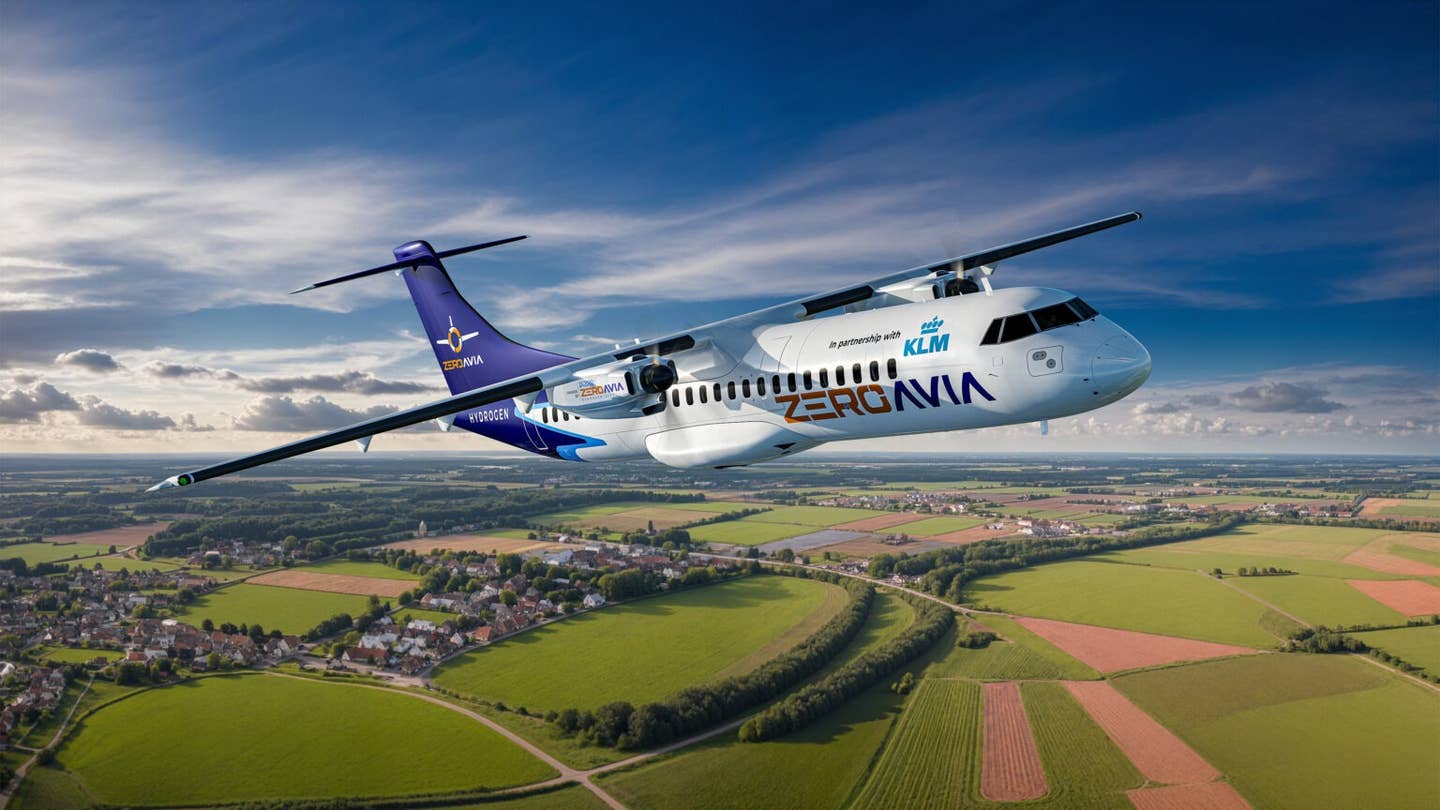
Archer’s Maker electric vertical takeoff and landing (eVTOL) aircraft Al Arena
Archer Aviation (NYSE:ACHR) on Thursday delivered its first quarterly earnings report since going public two months ago, reporting a $177 million net loss, but saying it remains on track to fly its innovative new aircraft prototype by next month.
The company attributed the loss to operating expenses, plus interest payments, which included the cost of hiring additional engineering staff and investments in Archer’s Maker electric vertical takeoff and landing (eVTOL) aircraft, which is currently under development.
“While we are very proud of our achievements to date, we recognize that we still face tough challenges ahead on the path to commercialization,” said co-CEO Adam Goldstein during a teleconference Thursday.
The company said it had $796 million cash at the end of the third quarter; capital expenditures were $1.1 million.
In September, the company became the third air taxi developer to begin trading on a major U.S. stock exchange this year after a reverse merger with special purpose acquisition company Atlas Crest Investment.
When Archer and Atlas initially announced the merger plan in February, proceeds were expected to be about $1.1 billion. But during the shareholder vote in September, 48.5 percent of eligible shareholders exercised redemption rights, resulting in $242 million less in revenue.
The merger generated $802 million in net cash proceeds.
While Archer is spending a lot of money in its efforts to establish itself, the goal is to eventually reap benefits from a new industry that is projected to be valued at more than $1 trillion dollars by 2040.
Looking Ahead
The company has emerged as a major player in the eVTOL manufacturing space as it develops a prototype, single-wing, tilt-rotor, v-tail, air taxi called Maker. On Thursday, it said it plans to unveil the production version of Maker in 2023. All 12 of Maker’s rotors are designed to lift the aircraft in hovering mode like a helicopter. But during horizontal flight, six rotors will tilt forward to provide forward propulsion, allowing the aircraft to fly like a plane.
The company intends to not only manufacture its aircraft but also to operate an air taxi service—a vertically integrated business model that experts acknowledge is very expensive to execute.
Archer has previously said it expects Maker to perform its first test flight by the end of this year with plans to begin operations in 2024. It reaffirmed both on Thursday, saying it’s on track to start test flights in December.
Leaders at Archer intend to gain FAA certification for its aircraft as part of a new wave of eVTOLs that promise quick, environmentally friendly hops over traffic-congested streets and highways.
Archer said Maker’s flight control software is a key focus. But they said a strategy on how to best develop it is still in the planning phase.
“We have, we think, a really good grasp on what to do here,” said co-CEO Brett Adcock. “We haven’t fully guided to exactly how we’re going to do that. Some of this, from a competitive perspective, is really important for us to keep in house.”
Sergio Ferreira, who led flight control systems development at Gulfstream for its G650 business jet and other aircraft, has been brought in to direct development of Archer’s fly-by-wire flight control system, Adcock said.
The company says it is in the final stages of choosing a manufacturing site, which it plans to start building next year with a completion date in 2023. “We have three states that we’ve downselected to,” co-CEO Goldstein told FLYING last fall.
Last September, the company announced it had passed a key threshold toward final certification, receiving G-1 Certification. On Thursday, the company said it expects to get its G-2 Certification Means of Compliance in 2022.
A mobile booking app is in development by the company with plans to launch and begin initial testing in 2023, but the company will first need to receive Part 135 Certification from the FAA.
Archer faces stiff competition from Uber-backed Joby Aviation, which will be piggybacking off of Uber’s already established mobile booking platform when Joby is expected to enter service, sometime in 2024.
Ahead of Thursday’s release, Archer also announced that it had received its Manufacturing Inspection District Office (MIDO) Certificate of Authorization and Aircraft Limitations from the FAA.
The company’s portfolio has been bolstered by a deal with United Airlines earlier this year. The carrier has placed an order to purchase Archer eVTOLs—subject to business and operating requirements—worth $1 billion, with an option for $500,000 more. Possible launch markets include Los Angeles—a United hub.
Federal Lawsuit
For seven months, Archer has been embroiled in a federal patent infringement and trade secret misappropriation lawsuit with Silicon Valley rival Wisk Aero. Wisk has accused Archer of “brazen theft of its intellectual property and confidential information” related to Wisk’s next-generation eVTOL aircraft.
Archer has specifically denied “any act of patent infringement or trade secret misappropriation.”
“Wisk’s accusations are without merit, and nothing more than an attempt to stifle competition,” said Archer’s chief legal officer Andrew Missan.
So far, both sides have scored legal victories. The judge in the case has denied Wisk’s request to essentially force Archer to stop developing Maker. The judge has also denied Archer’s request to dismiss the case.
A jury trial to decide the case has been set for January 30, 2023.

Subscribe to Our Newsletter
Get the latest FLYING stories delivered directly to your inbox






